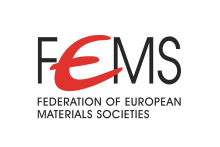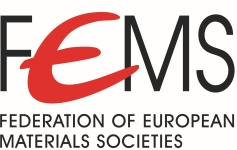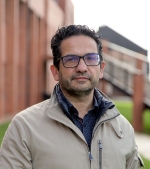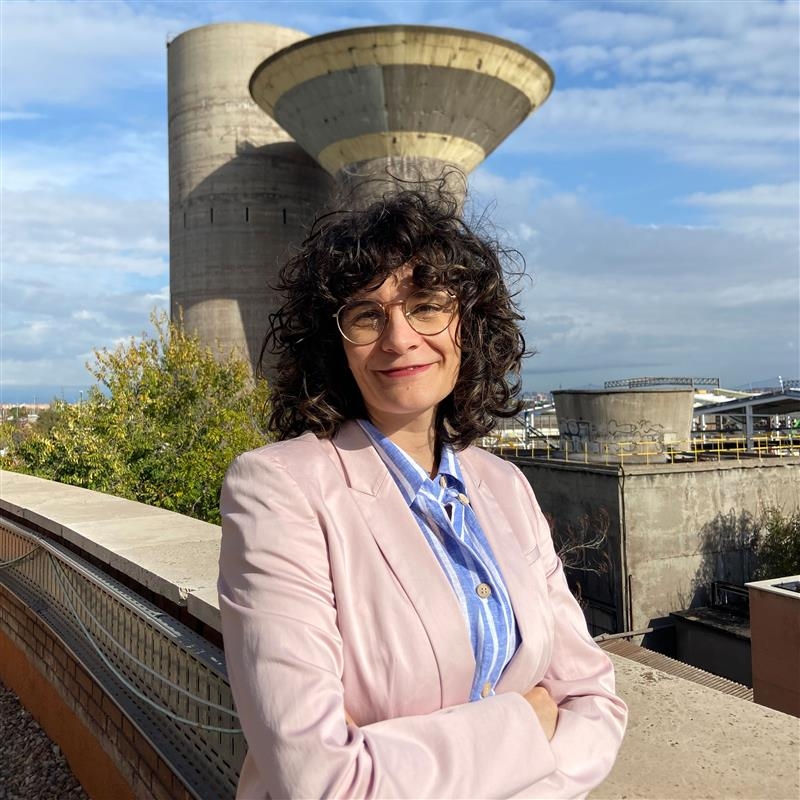Materials assisted by digital science: Revolution, benefits & risks for industry

14:00 CET
Following the successful series of roundtables held online in 2022 and in person at FEMS EUROMAT 2023, FEMS SAG (Strategic Advisory Group) is organising an online meeting for industry stakeholders, part of AI 4 Digital Materials.
The online event aims to enhance discoveries in materials science by refining automated designs for both structural and electronic material models in engineering. It will focus on improving trans-operability among material databases and reverse materials engineering.
Findings from this event will be further discussed at the in-person meeting to be held at the AI 4 Digital Materials 2025 session during FEMS EUROMAT 2025 (Granada, 14-18 September).
Register to attend
(After registering, you will receive a confirmation email containing information about joining the meeting)
Timetable
14:00 Welcome & Introductions
Prof Aldo R Boccaccini | FEMS President
Dr Gerhard Hackl | FEMS SAG Chair
14:10 Presentations, Q&A session
Benefits and Risks of AI Applications in Material Science
Assoc Prof Eugénio Rocha | Department of Mathematics, University of Aveiro
Artificial Intelligence (AI) will revolutionize many areas of science, in particular, Material Science by improving the way materials are researched, developed, and utilized. This talk explores, from a global point of view, how AI enhances the efficiency of discovery, design, and optimization processes, supporting the work of professionals and scientists. Benefits for industrial stakeholders include enhanced efficiency, innovative solutions, and cost reduction, with implications to Society as sustainable and eco-friendly materials, improvements in health and safety, and a general implication on economic growth. However, all such benefits carry some risks, such as ethical concerns, potential job displacement, and a high dependence on technology. The talk will discuss the balance between leveraging AI's advantages and addressing the associated risks, emphasizing the need for responsible practices in Material Science.
Fast Reply to Changing Global Challenges Through Combination and Materials Science and Data Science
Dr Irene de Diego Calderón | Scientist, Artificial Intelligence, ArcelorMittal - Global Research & Development
ArcelorMittal´s is leading the steel industry in providing low-carbon solutions to our customers. In order to maintain our sustainable leadership position in the current volatile market conditions, a fast reply must be provided to satisfy our customer requests. This means that it is mandatory to constantly reinvent the content of the products we sell and the ways we produce, as a reply to our customer needs. To achieve that goal, our roadmap features different actions that act as stepping-stones to achieving the final target. One of the key components of such roadmap is to guarantee that the organization keeps operating within new technological and digital realities. For instance, advanced Machine Learning and Mathematical Optimization technologies, can be applied to support the design of new steel alloys to target specific properties. In this regard, a collaborative approach facilitating the communication between metallurgical experts and AI specialists is essential. This approach might have a significant impact in the reduction of the number of trials and hence a direct effect in time and cost.
Leveraging Machine Learning for Advancements in Computational Materials Design
Prof Lorenz Romaner | Department of Materials Science, University of Leoben
Development of future high-performance materials requires reliable process-structure-property relationships. Computational materials science has used physical laws for this purpose and many successful material calculation tools on different length scales are available nowadays. Recently, machine learning (ML) approaches have entered this research field providing new opportunities for computational design in several respects. First of all, ML methods can replace and accelerate physics based simulations with surrogate models. In this talk it will be shown how ML algorithms can be trained to atomistic simulations to extended their predictions to large portions of the periodic table in a particular efficient manner. Furthermore, multi-physics simulations on the macro scale can be accelerated by several orders of magnitude. Second, it will be shown how Bayesian inference can be used to calibrate physics based models to provide uncertainty quantification and guided acquisition of new experimental data points which are typically expensive in materials design.
15:10 AI Industry Symposium at FEMS EUROMAT 2025
15:50 Closing remarks
Prof Aldo R Boccaccini | FEMS President
Dr Gerhard Hackl | FEMS SAG Chair
About the Speakers
Assoc Prof Eugénio Rocha | Department of Mathematics, University of Aveiro
Eugénio Rocha has a degree in Computer Science (Artificial Intelligence) and a PhD in Mathematics. He is an Associate Professor at the Department of Mathematics of the University of Aveiro and the President of the Portuguese Mathematical Society. He has more than 100 communications and 100 publications applied to Artificial Intelligence, Biological Systems and Epidemiology, Civil Engineering, Computational Chemistry and Nanotechnology, Econometrics, and Pure Mathematics. He currently coordinates four projects, with a direct total budget of 3.2 million euros, in Big Data, Data Analytics and Machine Learning, dealing with problems of various national and international industrial partners.
Dr Irene de Diego Calderón | Scientist, Artificial Intelligence, ArcelorMittal - Global Research & Development
Irene graduated in Industrial Engineering from Universidad Carlos III de Madrid in 2009. Additionally, she has a PhD in Materials Science developed at the IMDEA Materials Institute, being her thesis awarded with the Young Academics Steel Award by the German Steel Producers Association (VDEh). With this award, results achieved in the field of metallurgy and material science of steel throughout Europe were rewarded, using the relevance for the steel industry and the scientific progress achieved as evaluation criteria.
In October 2015, Irene joined ArcelorMittal Global R&D as a Research Engineer in the R&D Maizières Products Laboratory. Her work was focused on the development of new products for the automotive market. The results obtained are now used as guidelines for the production and optimization of new products. As a result, Irene was awarded in 2019 with the Jean Rist Medal, awarded to young researchers under 35 years of age by the French Society of Metallurgy and Materials (SF2M).
Since March 2021, Irene is Scientist within ArcelorMittal Global R&D Spain. Her work focuses on the development of innovative digital solutions applied throughout the product development and manufacturing chain. In addition, she acts as an interface between R&D data scientists and product development teams located around the World. Irene also holds an MBA in Business Administration.
Prof Lorenz Romaner | Prof Lorenz Romaner | Department of Materials Science, University of Leoben
Lorenz Romaner received his master's degree and PhD in solid-state physics from TU Graz. He is a full professor of computational materials science at Montanuniversität Leoben. His research focuses on the design of materials using both physics-based and data-driven modeling methods. He has co-authored 96 publications in the field, with a primary emphasis on understanding the relationship between crystallographic defect structures and material properties. He is involved in several research projects and currently leads the Christian Doppler Laboratory for Advanced Computational Design of Crystal Growth, which focuses on the virtualization of processes for producing high-quality silicon carbide single crystals.
Register to attend
(After registering, you will receive a confirmation email containing information about joining the meeting)
About AI 4 Digital Materials
An interdisciplinary international event that bring together top experts from industry and research institutions utilizing artificial intelligence.
Enquiries
For more information, please email secretary@fems.org
FEMS members - log in to view discount codes for FEMS events




